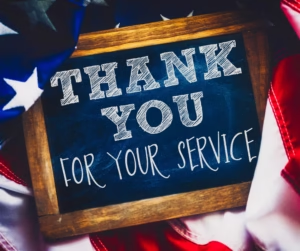
Understanding PTSD in Veterans
Post-Traumatic Stress Disorder (PTSD) is a serious mental health condition that affects many veterans due to the intense and often traumatic experiences faced during military service. PTSD can develop after combat exposure, witnessing distressing events, or experiencing personal trauma.
Common Symptoms of PTSD
- Intrusive Thoughts & Flashbacks: Unwanted memories, nightmares, or feeling as if you are reliving a traumatic event.
- Avoidance Behavior: Steering clear of places, people, or situations that remind you of the trauma.
- Negative Changes in Mood & Thinking: Feelings of guilt, hopelessness, or detachment from loved ones.
- Hyperarousal Symptoms: Difficulty sleeping, being easily startled, or feeling on edge.
Without proper support, PTSD can lead to severe consequences, including depression, substance abuse, and even suicidal thoughts.
The Reality of Veteran Suicide
Veteran suicide is a crisis that demands urgent attention. According to the Department of Veterans Affairs (VA), an average of 17 veterans die by suicide each day. The transition from military to civilian life, PTSD, chronic pain, financial struggles, and isolation can all contribute to this devastating reality.
Warning Signs of Suicide Risk
Recognizing the signs of suicidal thoughts or behavior in yourself or a fellow veteran is crucial:
- Expressing feelings of hopelessness or having no reason to live.
- Talking about wanting to die or making plans to end their life.
- Withdrawing from loved ones and social activities.
- Increased use of alcohol or drugs.
- Sudden mood improvements after a period of deep depression (which may indicate final decision-making).
Support Resources for Veterans
If you or someone you know is struggling with PTSD or suicidal thoughts, there is help available. Here are some vital resources:
🔹 Veterans Crisis Line (Dial 988, then press 1): A 24/7 confidential helpline offering immediate support to veterans in crisis. Visit the Crisis Line
🔹 National Center for PTSD: The VA’s leading research and treatment center for PTSD. Learn More
🔹 Wounded Warrior Project (WWP): Offers mental health programs and support groups for veterans. Visit WWP
🔹 Mission 22: A nonprofit dedicated to ending veteran suicide through treatment programs and community outreach. Explore Mission 22
🔹 Veterans Affairs (VA) Mental Health Services: Access mental health care and therapy through the VA. Find a VA Facility
For additional veteran-specific resources, including housing assistance and financial aid, visit our Veterans Resources page:
➡ Veterans Mortgage Solutions Resources
How You Can Help a Fellow Veteran in Crisis
If you know a veteran who is struggling, don’t hesitate to reach out. Here’s what you can do:
✅ Start the Conversation – Simply asking, “Are you okay?” can make a huge difference.
✅ Listen Without Judgment – Allow them to share their feelings openly.
✅ Encourage Professional Help – Offer to help them contact a crisis line or mental health provider.
✅ Stay Connected – Check in regularly, even if they seem fine.
Final Thoughts
PTSD and suicide are urgent issues within the veteran community, but no one has to battle them alone. If you or a loved one is struggling, reach out to the available resources and seek support. Your service was invaluable, and your life is too.
If you need assistance with VA home loans, financial stability, or other veteran benefits, visit our Veterans Resources page for support:
➡ Veterans Mortgage Solutions Resources
🛑 If you are in immediate danger, call 911 or the Veterans Crisis Line at 988 (Press 1). Help is available.
